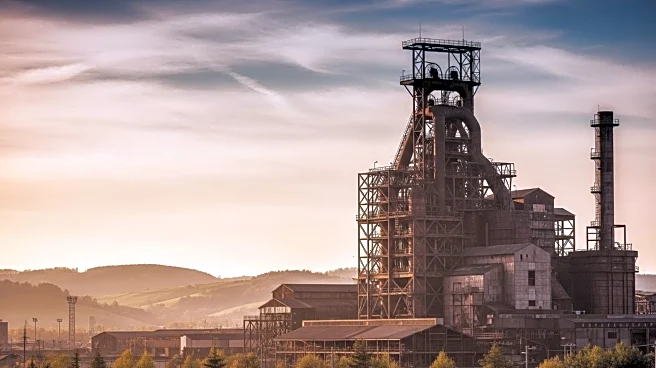What's Happening?
The Ajaokuta Steel Complex in Nigeria, conceived in the 1970s with Soviet assistance, remains largely incomplete despite being structurally near completion by the mid-1980s. Critical components like the blast furnace and coke ovens remain nonfunctional, hindering full-scale steel production. The project has faced numerous challenges, including policy inconsistency, underfunding, and corruption. Concession agreements with private firms have often failed, leading to legal disputes and settlement costs. Despite recent efforts to revive the complex, including financial settlements and new partnerships, the project continues to struggle with operational and infrastructural gaps.
Why It's Important?
The prolonged stagnation of the Ajaokuta Steel Complex represents a significant missed opportunity for Nigeria's industrialization and economic growth. The inability to complete the project has implications for the country's steel industry, affecting job creation and economic diversification. The challenges faced by Ajaokuta highlight broader issues of governance, corruption, and infrastructure development in Nigeria. Addressing these systemic failures is crucial for future industrial projects and economic stability in the region.
What's Next?
Efforts to revive the Ajaokuta Steel Complex are ongoing, with the Nigerian government regaining control from Global Steel Holdings and exploring new partnerships. However, successful revival will require addressing past flaws, including policy inconsistency, corruption, and infrastructural gaps. Stakeholders express cautious optimism, but warn that without comprehensive reforms, the project may continue to face setbacks. The focus will be on ensuring consistent political commitment, transparent contracts, and sustainable infrastructure development.
Beyond the Headlines
The Ajaokuta Steel Complex serves as a cautionary tale for large-scale industrial projects, emphasizing the need for continuous political commitment and robust infrastructure support. The project's history underscores the importance of transparency and accountability in concession agreements and public enterprise management. The failure to operationalize Ajaokuta reflects broader challenges in Nigeria's economic development, highlighting the need for systemic reforms to foster industrial growth and reduce reliance on foreign technologies.












